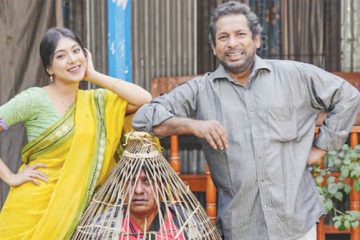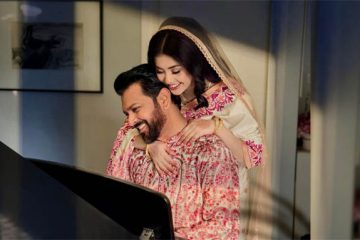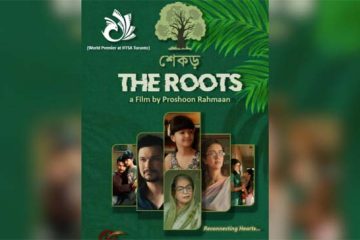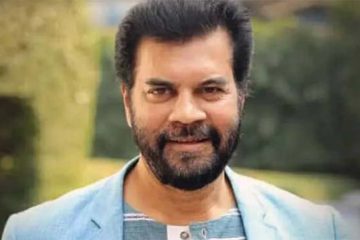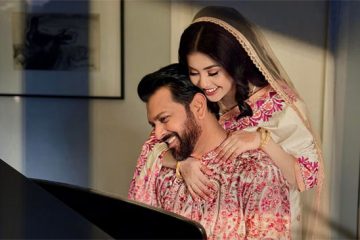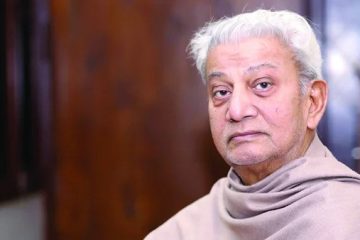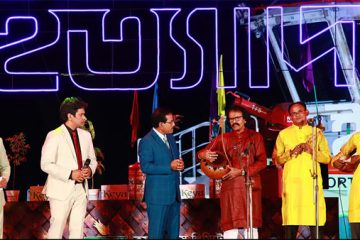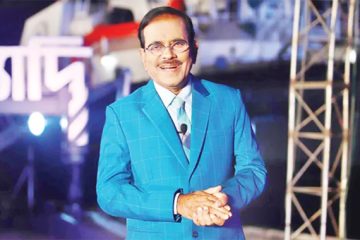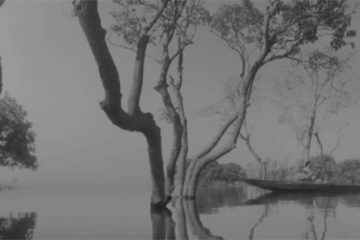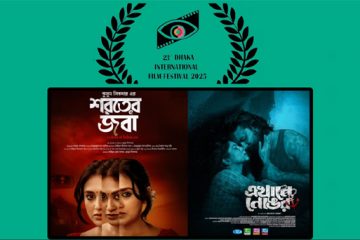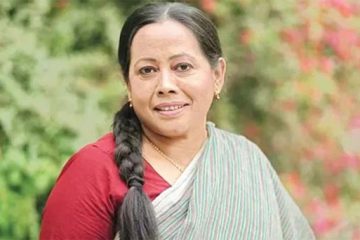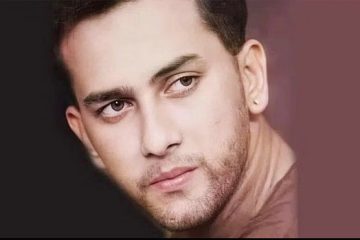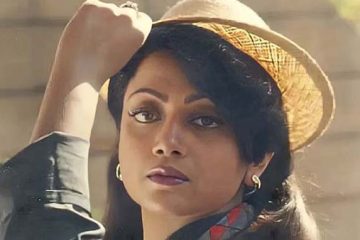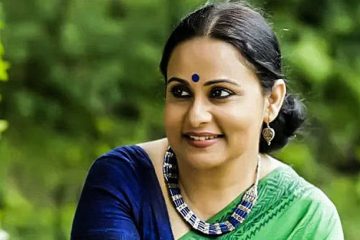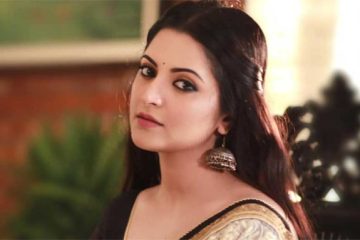Shahiduzzaman Selim
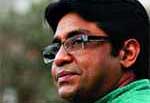 Shahiduzzaman Selim is the embodiment of a gifted actor. His fans are also familiar with his talents behind the camera, since he turned director. But in ‘Spicy Bites’, cultural personalities face questions on issues from all angles, i.e. ‘what would he/she do if he/she becomes the mayor of the city for a day?’ or ‘how should we deal with waste of resources?’
Shahiduzzaman Selim is the embodiment of a gifted actor. His fans are also familiar with his talents behind the camera, since he turned director. But in ‘Spicy Bites’, cultural personalities face questions on issues from all angles, i.e. ‘what would he/she do if he/she becomes the mayor of the city for a day?’ or ‘how should we deal with waste of resources?’
In the first instalment of ‘Spicy Bites’, Selim shared how he recalls Dhaka of his childhood and more.
The Daily Star (TDS): You grew up in Old Dhaka. Tell us how the city was back then.
Selim: I think I must begin with my fascination with movies and theatre. We didn’t get to watch TV that much back in the day. We eagerly listened to radio. My father and uncles used to take me to different movie theatres around the city: from Madhumita and Abhishar to Gulistan and Naz, Shabistan, Star, Moon… We never missed a new film. Star and Moon were located at Islampur in Old Dhaka, one next to the other. There were always some delectable foods around the movie theatres. There was this shop, near Baitul Mukarram, that sold wonderful lassi. The shop is still there but they don’t sell lassi anymore.
I’m talking about 1969-70. There were some shops around Star movie theatre, owned by the Biharis. After the show, my uncle and father had tea while I devoured sweets at those shops.
There was a big restaurant called Chimney in old town. We went there a lot. To the opposite of what is now Ramna Bhaban, there was a restaurant called Salimabad. They had some really delicious items. There were some restaurants behind the Stadium. Islamia Restaurant near the entrance of Mohammedan Club was famous for its mughlai paratha and kebab. Across the street from what is now Ekushey TV building, there was a kebab joint. It was on a small island in the middle of a swamp and there was a wooden bridge we had to take to get to that place. The kebabs were unforgettable.
I still go to the Thataribazar Star Restaurant with my wife and daughters. Al Razzak Hotel at Bangshal also has some wonderful traditional dishes on their menu.
I remember going to Becharam Dewri with my father. Nanna Miah-er polao was something that I’ll never forget.
Litterateurs and thinkers used to hang out at some particular restaurants back in the day. I think you can’t talk about Dhaka without talking about its food. It’s very much a part of our tradition.
There was a restaurant called Rex on Bangabandhu Avenue (then Jinnah Avenue). Waiters wearing urdi severed the customers. There was also an ice-cream shop called Baby Ice-cream Corner. Near Naz and Gulistan, there was a Chinese restaurant, which was probably the first of its kind in the city.
We played football at Ramna Park. The bakul trees that you see now were not this big back then.
Despite the frustrating traffic congestion and a whole host of other problems, Dhaka is the city that I love most. Whenever I go outside the country, I begin to feel homesick after around 15 days. I love the rickshaw, thelagari, bus, truck and every strange thing that happens to move on the streets of Dhaka.
TDS: What are the noticeable changes that the city has undergone, according to you?
Selim: It’s evident that some of the changes needed to be more planned. For example, the museum was located in Babupara near Nimtoli. I think they should have preserved and taken care of that one when they shifted the museum to Shahbagh. The zoo was located behind the Supreme Court. They could easily preserve this old zoo too.
There was a huge cannon near the Gulistan intersection. It was removed, for no reason. Also, there were big trees on the wide divider on Kazi Nazrul Islam Avenue. Then, instead of expanding the width of the street, the planners decided to cut the trees to make the divider narrower. There have been some positive changes too, thanks to the environmentalists and the newspapers that helped raise awareness on these issues. People just can’t go about cutting down trees with impunity anymore.
But look how we keep on digging the same road for different purposes throughout the year. And why does that happen? It always happens because of endemic corruption. And if you don’t have these incessant digging on the roads, how else will some people earn a living?
I feel rather comfortable in the old town these days. The city is expanding, people want more. Look at the areas around Dhaka-Mymensingh, Dhaka-Savar, and Dhaka-Jaidevpur highways. All you’ll see is unplanned urbanisation. These are very significant changes with obvious consequences.
TDS: What do you think of the changes in lifestyle?
Selim: My father was a government officer when I was a kid. We lived in a house in Malibagh with plenty of space around. I used to play in the fields and could see my father approaching when he was a long way off. He always brought something on his way home. However, those fields and the emotions are gone from the city and our lives. People have become mechanical. My daughters, for example, do not anticipate that I’m coming home when I’m in the elevator or the garage because they can’t see me approaching.
Once, people in this city rushed to help when somebody had an accident or was in an emergency. But what do we do when there’s an accident on the street these days? We impatiently wait for the road to be cleared so that we can go about our own business.
I want to recount one incident: I went to watch the inaugural match of the ICC World Cup 2011 (in Dhaka) with my wife and daughters. I had tickets for seats at the VIP Gallery. However, when I was looking for our seats, I found that they were already occupied. The shocking part of it is that the people who occupied our seats were politicians. One of them was an MP of the ruling party. I politely asked them to leave our seats and I was told that I should look for other vacant seats. My question is: if the lawmakers break laws, how can we expect regular folks to abide by them?
Who are mostly responsible for creating traffic congestion in the city? It’s the cars of the rich and powerful. I wish they were considerate towards the people of the city who spend hours in frustrating traffic deadlocks long after the VIP has left. I wish they were considerate enough to use helicopters. Can’t they take a minute and consider that patients in critical situations and students who are about to sit for examinations get stuck helplessly on the road?
-With The Daily Star input

